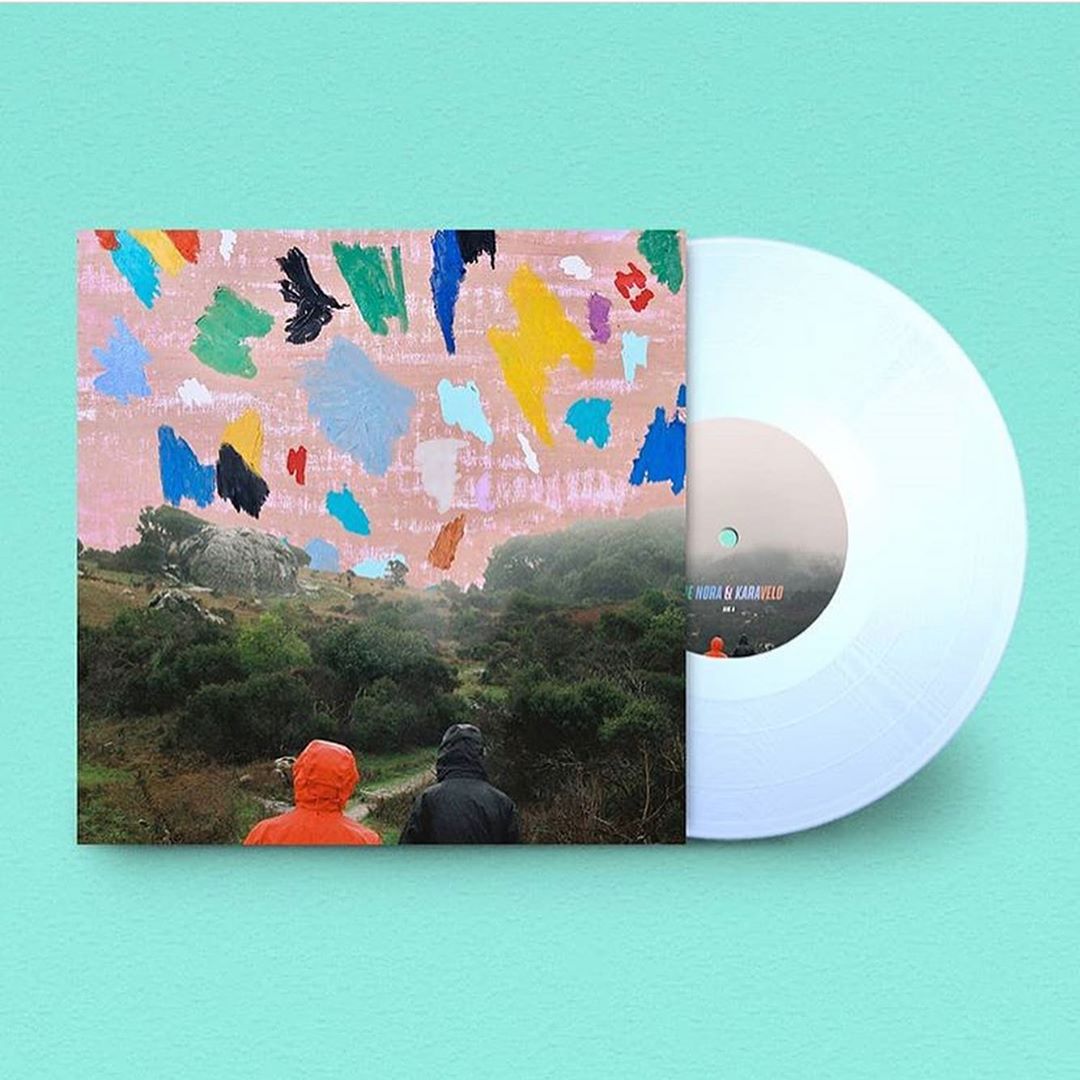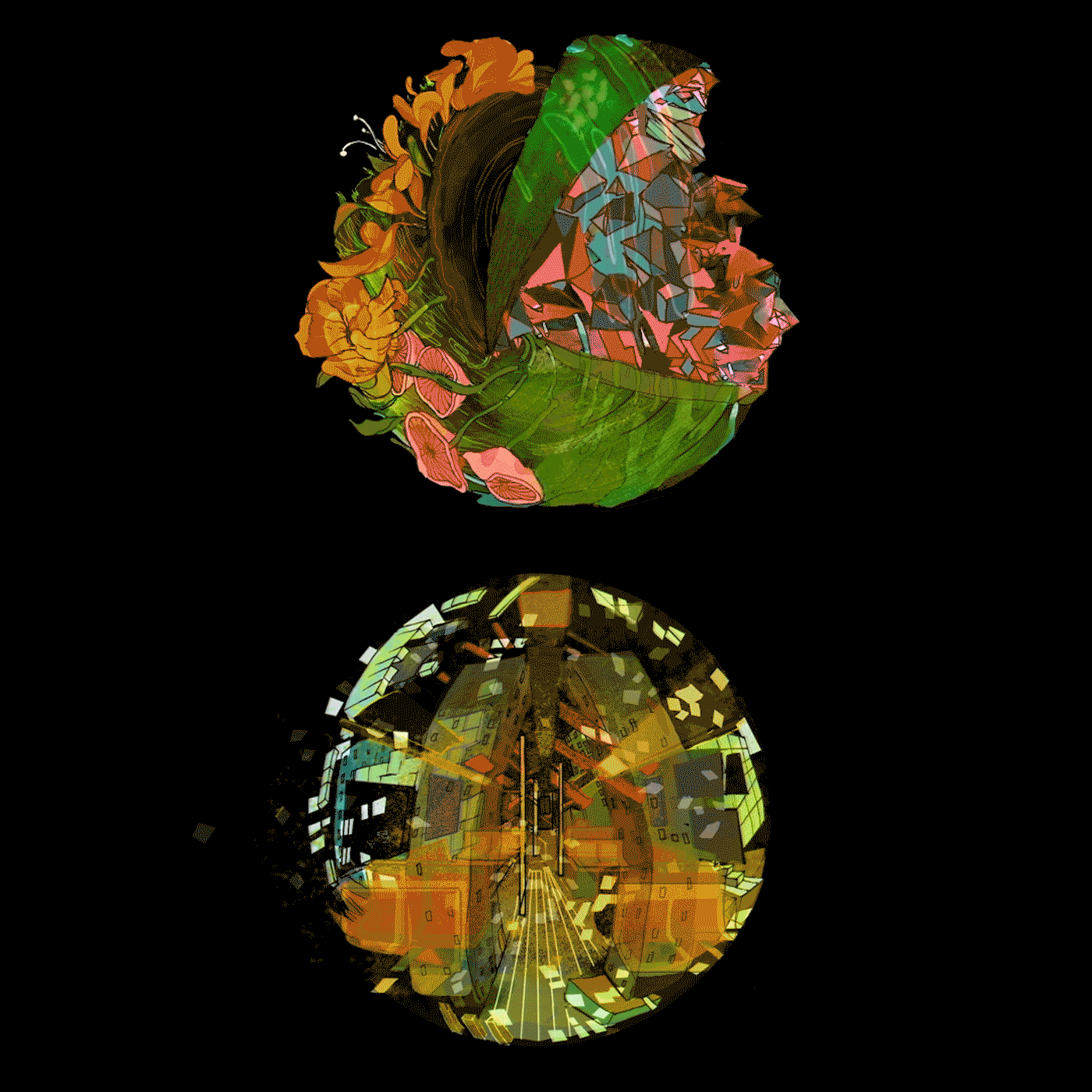Producers Joe Nora and Karavelo are fresh off the release of their collaborative album, Favorite Color, Rain. The ten song instrumental project (released through Effortless Audio) began as a back-and-forth between the two producers, who initially worked on one song which quickly turned into enough for a proper album. I spoke with the two artists who have never met (Nora in Los Angeles and Karavelo in Vancouver) and they talked about their history, their upcoming projects, and advice on producers working together.
How long have the two of you been working on music?
Karavelo: I fooled around with software in the early 2000s but never really got into any of it. My computer was never fast enough to run it. I needed something portable I could move from room to room or bring to my friends’ houses. Laptops just weren’t an option. They were expensive and slow.
I bought my first drum machine at the end of high school around 2003-2004. It was a used MPC 1000. It cost me about $800. I had no clue what I was doing, but that’s what made it fun. To this day, it was the best musical purchase I’ve ever made.
Joe: I think [we have been working together] about 6 months.
How did this album come about?
Karavelo: Joe and I were connected by Kevin, the Effortless label owner. He wanted to get the roster doing collaborations and bring awareness to the label. Joe was someone whose music I really liked but had never spoken to. I’d always thought his sound was unique, especially his percussion. Sort of a dripping tap, boat rocking against a dock kind of sound…When you hear his music, you immediately know it’s him. That’s both rare in this scene, and something I highly value. I like people that stand out in the scene. Those are my people.
Joe: I had been talking to Effortless Audio about doing an EP with them and was sending them demos. At one point they mentioned that their artist Karavelo was looking to do some collabs and wondered if I was interested. I immediately said that I was because I had been very inspired by one of his MPC videos where he chopped some jazz and water sounds together. I remember thinking damn this is the type of stuff I wish I could make and usually the type of stuff I try to emulate in my own way. So I knew already that we had similar goals for our sound. Effortless introduced us over email and we hit it off and started making stuff quite quickly.
Any tracks or ideas/demos that didn't make the cut?
Karavelo: I don’t think so…the process on this album, for the most part, was about incremental layering. Joe would send me something…a foundation…and I’d add a few elements. I’d flip it back to Joe and he’d add elements. Sometimes it would be the other way around, where I’d kick things off and get him to build.
That gave us the flexibility to take things one step at a time and course correct if we needed to. It was like passing back and forth a ball of clay: it may have started as a tree and ended as an airplane, but at the end of the day – it’s still the same ball of clay.
Joe: Actually, no. Everything we made ended up on the album I believe. We found a way to make them all work well. Some of them I kind of thought about leaving out but I think they still all worked well together so there wasn’t really any reason to leave one out. Sometimes I stop liking songs I’ve made after a while but it doesn’t mean they are bad. Usually those songs that I stop liking still get a good response so I figured it was just a case of me liking some more than others and that they were all cool in their own way.
How was the process similar/different from your own solo production?
Joe: It was quite different but we were each able to stay in our comfort zone for our own production techniques which made it really easy to get stuff done. I love Karavelo’s style of chopping samples live on his MPC, something that I do not have in my own bag of tricks, so I wanted to keep that style since it was something that I don’t usually do in my usually productions. At first I tried to make little ambient pieces of melodies and textures for him to flip like a sample. The first few tracks we made like that and it worked very well and then we kinda traded places and he sent me a bunch of samples to flip. This way we were each able to kind of set the groove and mood of each track before sending it back to the other person to add some more layers to the now solidified beat.
Karavelo: If you’re familiar with most of my music, it’s rough around the edges. I’m an MPC dude. Real simple. I like working in the box and rarely do any serious editing in my DAW or on the computer. I light up the MPC, spark a spliff, turn on my record player, and get to work. The fun for me is in the loop digging, chopping the right bits, and playing around with the elements. It’s like building an instrument. You know that feeling when you put fresh strings on a guitar, and everything’s tuned up and you’re ready to go? That’s what it’s like: A newly strung guitar. Every. Time.
This was the first time I made an album with someone else where we built all the tracks together. I needed to get more focused for this project. Record properly. Pay attention to noise. Make sure my stems were on point. It took the experience out of isolation and got me to consider that someone else was involved. It was both humbling and educational. Joe taught me a lot about production, mixing, and arranging. I’m very grateful for that.
Individually, what you are the two of your currently working on?
Karavelo: I’ve been sitting on this project for about a year…It’s called “That’s Boring!” and very emblematic of the music I used to make in high school and university: dumb mixtapes for friends. They’d often be dollar bin record flips, so the sound quality was terrible. We’d have people over to the house to drink and smoke and stay up all night making beats and rapping. It was fun. I’d keep the tracks, add a few of my own, then string them all together in the Tascam and add funny clips from movies and TV. Those are some of my favorite projects. I don’t see “That’s Boring!” getting much love from the new generation, but old beat heads will dig it.
Joe: I just returned from an amazing trip to the Inner Ocean Records studio in Calgary where producer Yuutsu and I had a week long residency and made a bunch of music. We are starting to finish those up into a little project so that will be a fun one to look out for. Other than that I have a small EP that I am kind of sitting on but will most likely start dropping some loose singles here and there in the next few months.
Given that a producer collaboration can be a bit tricky, it can work or it can't, do you have any advice for approaching a collaborative atmosphere?
Joe: Just notice how things might naturally come together. If things move quickly and seem to lock into place without a lot of effort then maybe try to keep pushing and see what else you can make together. You might end up with more than you anticipated and have some different options to choose from. Also I think it’s important to identify what the other person is particularly good at, specifically things that maybe you yourself are not as good at, and then assign each other the parts of the song that fit you best or that your most comfortable making. Also it can help to kind of work on your own to get it right before sending it back to the other person to add to. When working together in the same room you might need to put headphones on and sort of focus on your own to get it right before showing the other person and letting them start working on it. Communicate very clearly how you feel about the song be honest and don’t be afraid to say you’re not into it and start something new.
Karavelo: Most people will tell you to “get out of your comfort zone” …“try new things”…”experiment”. That’s implied. What they don’t talk about is how to be efficient. How to be organized. That shit pays off big. Label your stems. Work out of a folder. Tell your collaborator what the BPM of your track is. All these things will help move your project along and make things easier.



![[TITLE] written while listening to Zushi by Dean Blunt](https://images.squarespace-cdn.com/content/v1/580fa9f7e58c62cb7501937b/1665847727162-7ZB4MQGXPPQSXY3GSJX1/zushi.jpeg)








![Squid Ethics' 10:00 [EP] + Interview](https://images.squarespace-cdn.com/content/v1/580fa9f7e58c62cb7501937b/1532965737298-9LL9DRPM0NKFS5I713MR/DSC_0882.JPG)


















